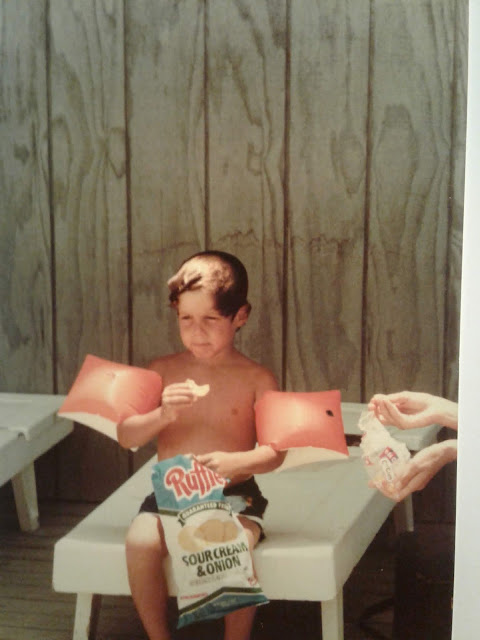How I created a story of my family's genealogical history using data from the 1930 United States census - with help from family photographs scanned and labeled dating back to the Great Mississippi Flood of 1927 and more.
 |
| An example of a census record as it looked like in 1930. |
I was going through old papers, and I found this family project I had done based on the 1930 United States Census, that my friend Bonnie Bess Wood encouraged me to complete.
At the time, my great-aunt Ida Killman Spiehler had spent some time with me during Hurricane Katrina in 2005, and because of our close proximity, I learned a lot about my maternal family tree. I wanted to learn more about my family, so I started to put together details. Thankfully, my Aunt Sandra, (who was also Ida's niece and my mother's older sister), had already done a lot of work. So we teamed up and created a fuller picture of what life may have been like in New Orleans, Louisiana from the turn of the century, to the Great Mississippi Flood of 1927, leading up the 1930 census.
Here is the letter I wrote to my Aunt, a kind of gift I had given her after I had done some genealogical research.
Dear Aunt Nen*,
A Story Gleaned from the United States 1930 Census
I wrote the following ‘story’ based on information from the United States 1930 Census**. It’s neat what you can find out from genealogical research!
When a Census Taker Comes A-Knocking
On April 17, 1930, in the Gentilly neighborhood of New Orleans, Louisiana, Mr. Frederick Schell knocked on the door at 5141 Arts Street (Between Elysian Fields and Franklin Avenues, and a few blocks South of Dreux Avenue) to get information for the United States Census (being conducted that year).
This is what I found out by looking at the Census record (Combined with stories you had told me):
Mrs. Albertine Killman answered the door, and she told Mr. Schell that she was 41 years old and that Mr. Francis Killman, Sr. was the head of the household, her husband. They had married on July 9, 1913, when Albertine was only about 24 years old, and Francis was almost 30. Francis, Sr. was 46 years old at the time of the Census, and he worked a salaried job as an engineer at the local ice plant*** to provide for his family who lived with him on Arts Street. Mr. Killman had been in the Navy as a youth as a fireman first class from 1908 to 1912. His first assignment was on board the U.S.S. Colorado.
 |
| U.S.S. Colorado (circa 1908) |
How Much Did a Family in New Orleans in 1930 Pay for their Rent Each Month?
The Killman family paid $18 a month for their rent ($509.07 in 2018 money) and did not own a radio of their own. They had four children who, in 1930, were all in school. It costs 7 cents ($1.07 in 2018 money) to take the streetcar to school.
The Four Killman Kids (My Grandmother and You, Aunt Nen)
Everyone in the family was born in the United States, but Albertine’s parents, Margaret Frank, and Friedrich Burkhardt, were born in Frankfurt, Germany. They emigrated from Germany circa 1860.
Francis, Jr. was the oldest at 16 years of age, Frederick (Or, Freddie, as he was called) was 13, Ida was 11 and Dorothy was 7. All the children were in school at the time this census was taken, and the entire family spoke English.
Two months after this Census was taken by Mr. Schell, a tragedy struck the family. At approximately 14 years of age, Freddie drowned in the Seabrook area of Lake Pontchartrain near the neighborhood of Little Woods.









